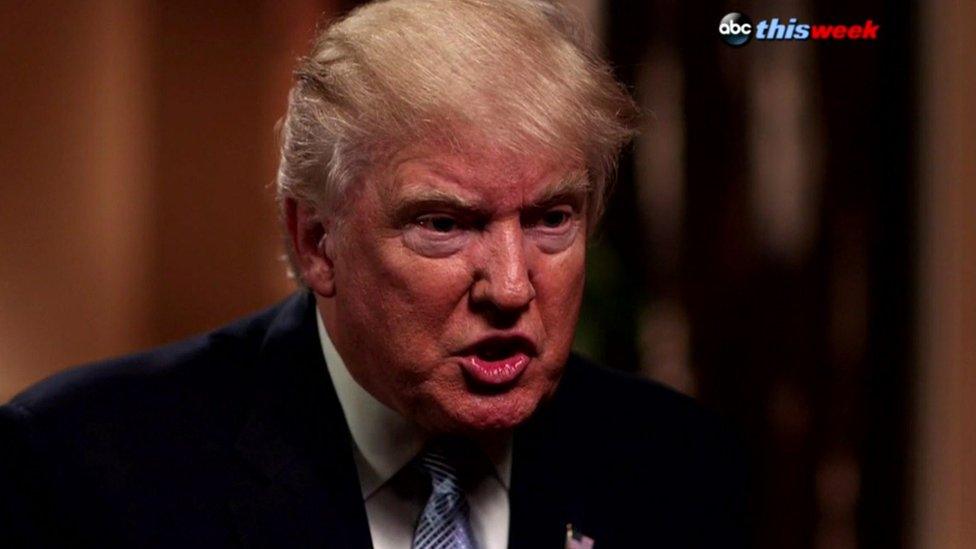Who was Capt Humayun Khan?
- Published
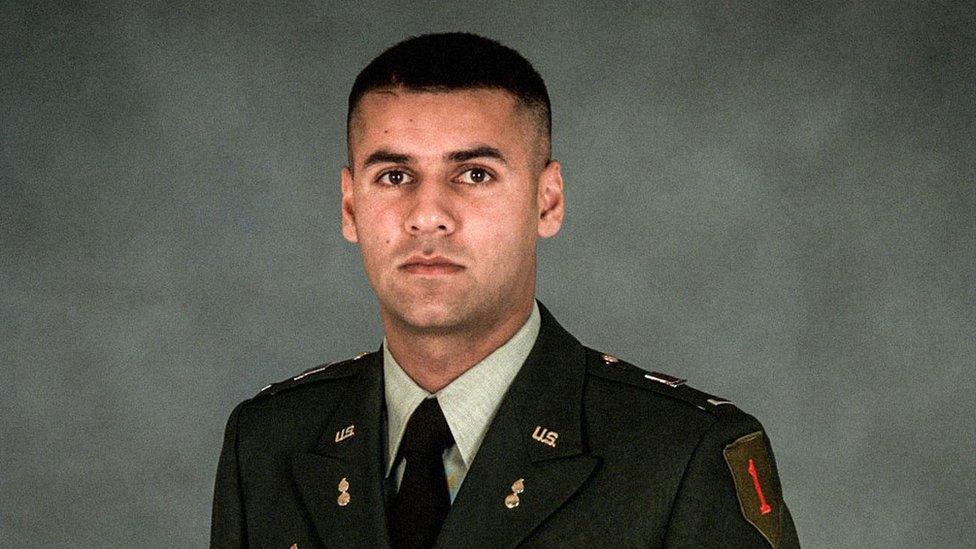
Khan was posthumously awarded the Purple Heart and the Bronze Star
Capt Humayun Khan - a US soldier who died fending off a suicide bomber in 2004 - has become an unlikely player in the 2016 election.
But who was the Army officer whose parents are now locked in public battle with Republican presidential candidate Donald Trump?
Khan was born in 1976 and his Pakistani family immigrated to the US two years later.
They settled in Silver Spring, Maryland, where Humayun grew up with two brothers.
His father has described him as a patriotic child with a fascination for Thomas Jefferson, one of America's founders.
While in secondary school, Humayun volunteered to give swimming lessons to disabled children.
After joining the University of Virginia, he signed up for the Reserve Officers' Training Corps, which prepares university students to become officers in the US military.
His father, who is a lawyer, was opposed to the move. But the younger Khan persisted.
"He wanted to give back. That's what he wanted to do," his father told the Washington Post, external.
After graduating from university in 2000, he served in the Army for four years and rose to the rank of captain.

Muslims in the America Military
Bampett Muhammad, who served under George Washington between 1775 and 1783, is one of the earliest recorded Muslims in the US army
A number of Muslims served in the Union army during the American Civil War, including Nicholas Said, who later became an activist
Over 15,000 Arab Americans served the US during World War II
More than 3,500 Muslims served in Afghanistan and Iraq

Before terrorists attacked New York and Washington in 2001, he had planned to leave the Army to attend law school.
But 9/11 changed his plans, and in 2004 he travelled to Iraq to support the post-war effort there.
During a phone call in May of 2004, his mother urged him not to be a hero, external and to return safely.
"Of course I will," his parents remembered him saying. "But Mother, you should know I have responsibility for these soldiers, and I cannot leave them unprotected."
A month later, Khan, 27, was dead.
While serving at Baqubah base, north-east of Baghdad, one of his duties was to inspect soldiers in the early morning near the compound's entrance gate.
On 8 June 2004, an inspection turned deadly when a taxi sped towards Khan's line of troops.
Acting quickly, he told his soldiers to step back and hit the ground as he moved towards the approaching car. He walked with his arm outstretched in a halt gesture for 10 to 15 seconds.
Just before reaching him, the driver detonated a suicide bomb.
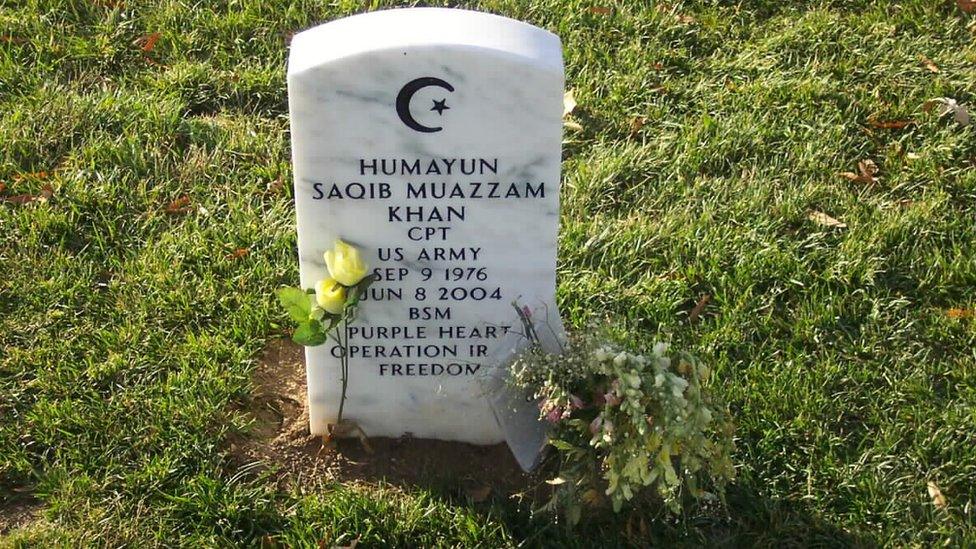
Khan is buried at Arlington Cemetery in Virginia
The explosion killed Khan. But in blocking the vehicle, he succeeded in saving countless colleagues, including more than a hundred soldiers eating breakfast close to the gateway to the base.
Khan was posthumously awarded the Purple Heart and the Bronze Star - two US military honours.
He was buried in Arlington Cemetery, near Washington, in a funeral attended by Democratic presidential nominee Hillary Clinton.


- Published1 August 2016
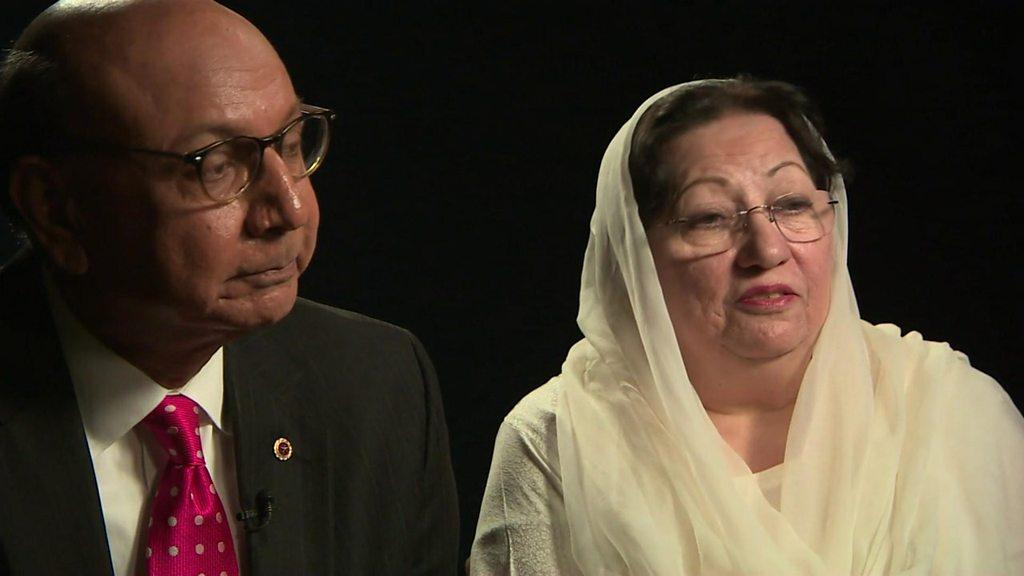
- Published31 July 2016
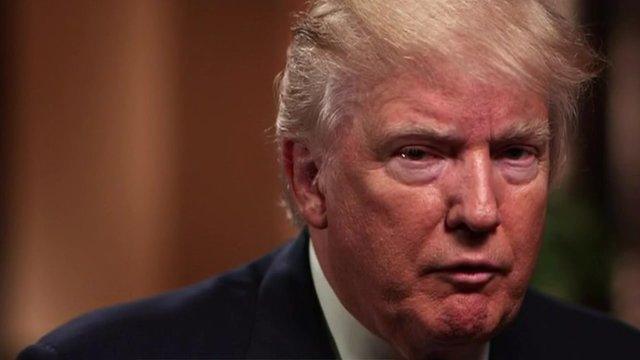
- Published31 July 2016
